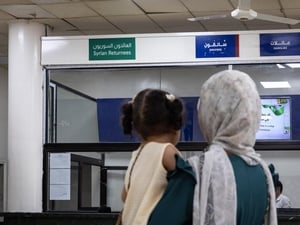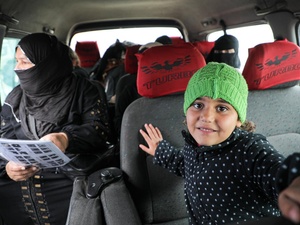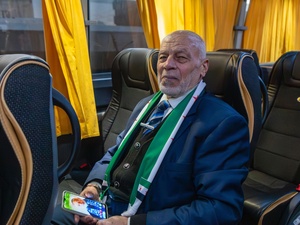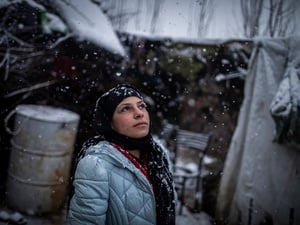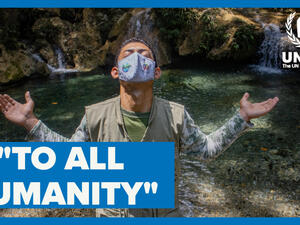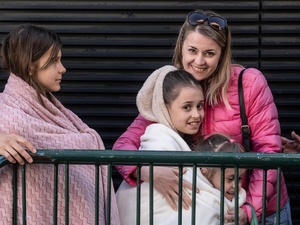The Gardenia Boys

The Gardenia Boys
Most of the time I love my job. But sometimes I hate it. Sometimes it makes it hard to sleep. It's 12:15 a.m. in Tripoli, Lebanon, and I have just returned from a lovely evening with friends in Beirut. I am nearly home. The streets of Tripoli are empty.
Out of the car window I see from the corner of my eye a little figure leaning on a car with one hand, dozing off with a bunch of roses in one hand and gardenia flower chains in another. I ask my friend to go round the roundabout again and stop in front of the boy. He jumps when the car lights wake him up. Then, slowly, he picks himself up and approaches us.
I start a conversation with the little boy, wondering why he is still out here. He tells me his name is Samir. He is a Syrian refugee from Halab and arrived here with his family a month and a half ago. He tells me his parents are at home with his siblings and that, every day, he comes out and stands at this spot to sell flowers. As he speaks, a million questions run through my mind but I struggle to find words. My heart breaks every time his big brown eyes look at me.
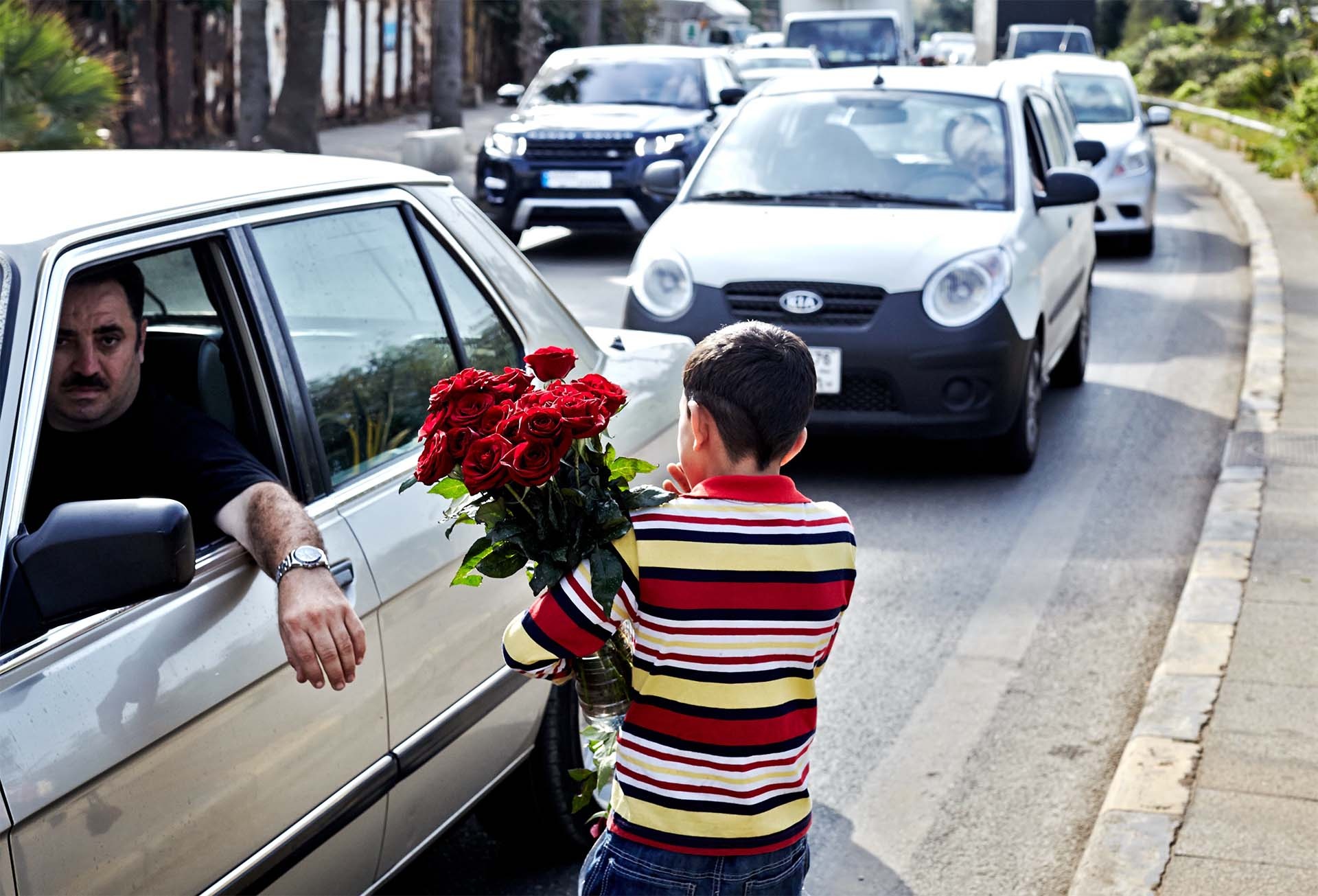
Bassel, a 9-year-old Syrian refugee, sells flower to motorists on the corniche in Beirut, Lebanon.
It sounds pathetic, but all I can do is beg Samir to go home. He looks down at his feet. Silence. He says he can't. His family needs the money. He has to sell all his flower chains. Samir has been doing this for a couple of weeks now. Sometimes he gets scared when he hears the shooting in Tripoli. He doesn't know what to do. After all, he is only ten.
I naively ask Samir who is picking him up when he finishes; nobody, he says. Eventually he will get into a taxi and go home to Wadi al Nahle, where his family lives. My friend and I give all the money we have to buy Samir's flowers so he can go home. But we don't have enough. Again I find myself begging Samir to go home. He shakes his head and looks down. I tell him to be careful and to go home as soon as he can. As we drive off, I burst into a hysterical fit of tears. I can't contain myself.
Samir is one of hundreds of "gardenia boys," Syrian refugee boys selling gardenia chains on the streets of Lebanon. It's no secret. These children are everywhere you look.
Back in Syria, Samir went to school. He told me he had never worked before his family came to Lebanon. Now, because of this brutal war, he is standing alone on a street corner selling flowers at midnight. Samir should be at home, safe in his bed.
As I struggle to stop crying, my sadness turns to rage. I want to scream. This, I realise, is how war robs children of their childhood. This is a crime. This war is not just killing people; it's destroying generations.
I will go to the office on Monday and refer Samir's case to my child protection colleagues. But Samir is just one of hundreds of Syrian "gardenia boys" selling flowers on the streets of Lebanon. It's no secret. These children are everywhere you look. The tragedy is that we are getting used to seeing them and that, despite the assistance we as UNHCR and our partners provide, it is simply not enough.
It's now 1:30 a.m. I'm still awake and I assume Samir is too, trying to sell those last remaining flowers chains. I wish I could have driven him home, but all I could do was cry. Children should not be on street corners at midnight. How many gardenia chains can I buy so all those kids can go home?
Tomorrow Samir will resume his normal spot and sell gardenia flower chains. Alone, standing on a dark street corner instead of tucked into a warm bed.
Tonight it's hard to sleep.


